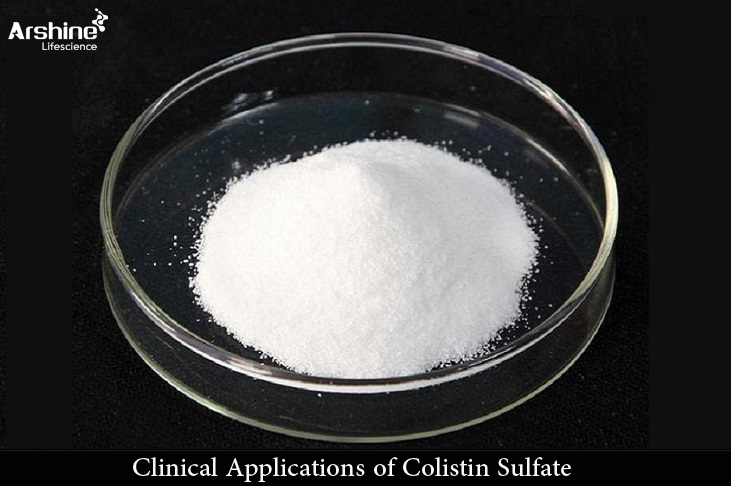

With the discovery of superbugs, research on antibiotic resistance has received unprecedented attention. Among numerous antibiotics, after years of extensive clinical monitoring and application, researchers were surprised to find that peptide antibiotics such as colistin, and another rarely used antibiotic vancomycin, have very few resistant strains.
Today, we will discuss colistin sulfate, an antibiotic with broad-spectrum effectiveness and minimal resistance. To help everyone gain a clearer understanding and use it more scientifically, we will cover its concept, pharmacodynamics, pharmacokinetics, and expert opinions on its application in different infection sites.
Concepts of Peptides and Colistin: Colistin belongs to a group of alkaline peptide antibiotics, including five types: A, B, C, D, and E. Polymyxin B and E are commonly used in clinical practice. Polymyxin B is administered as polymyxin sulfate B, while polymyxin E is available as polymyxin sulfate and colistin methanesulfonate (CMS).
Pharmacodynamics of Colistin Sulfate:
Antibacterial Mechanism of Colistin:
Antibacterial Spectrum of Colistin Sulfate: Colistin sulfate exhibits potent antibacterial activity against most Gram-negative bacteria, including Pseudomonas aeruginosa, Acinetobacter, Aeromonas, Escherichia coli, Klebsiella, Stenotrophomonas maltophilia, and Citrobacter. However, it shows unsatisfactory activity against Haemophilus influenzae, Bordetella pertussis, Legionella pneumophila, Salmonella, Shigella, and all Gram-positive bacteria, anaerobic bacteria, and some Gram-negative cocci (e.g., Neisseria species), mycoplasma, chlamydia, Proteus mirabilis, Morganella, Serratia, Burkholderia, and parasites.
Pharmacokinetics of Colistin: Colistin sulfate undergoes non-renal metabolism upon entering the body, while colistin methanesulfonate is primarily cleared through the kidneys. Studies indicate that 70% of colistin methanesulfonate is excreted unchanged via the kidneys, with a renal clearance rate of 103 mL/min. Critical illness, renal dysfunction, intermittent hemodialysis, and continuous renal replacement therapy significantly impact the pharmacokinetics of colistin methanesulfonate.
Application in Different Infection Sites: Opinion 1: It is not advisable to use colistin sulfate alone, as this may lead to wastage and suboptimal use. Combination therapy with other drugs based on infection site, pathogen, and sensitivity patterns is recommended for effective, efficient, and economical treatment outcomes. Opinion 2: For severe infectious diseases like empyema, bronchial obstruction, and duck serositis caused by multiple pathogens, combining colistin with antimicrobial agents is recommended to leverage high sensitivity and efficacy, along with promoting absorption, enhancing synergy, and combating inflammation and toxins. Opinion 3: For intestinal diseases, combining colistin sulfate with lincomycin hydrochloride, metronidazole, and drugs for hemostasis, anti-inflammation, and repair aids in treating multi-pathogen enterotoxic syndromes caused by coccidia, bacteria, and anaerobic bacteria. Opinion 4: Apart from therapeutic applications, colistin sulfate holds economic value in promoting poultry growth. While banned in feed additives, on-site administration during high-risk and fattening stages remains viable.
Clinical Practice and Case Studies: Colistin sulfate's clinical cases highlight its compatibility and ratio with doxycycline hydrochloride, highly water-soluble florfenicol, and broad-spectrum enhancers, showcasing its sensitivity and efficacy in treating conditions like chicken cystitis, Escherichia coli sepsis, and duck serositis. Precise ratio and dosage adjustments are crucial, considering challenges like non-absorption and formulation technologies.
Add: Block 14, No.100, Luyun Road, Changsha 410205, Hunan, China.
Email: info@arshinevet.com
WeChat: +8618874001228
WhatsApp: +8615697311407
Tel:86-731-82294958